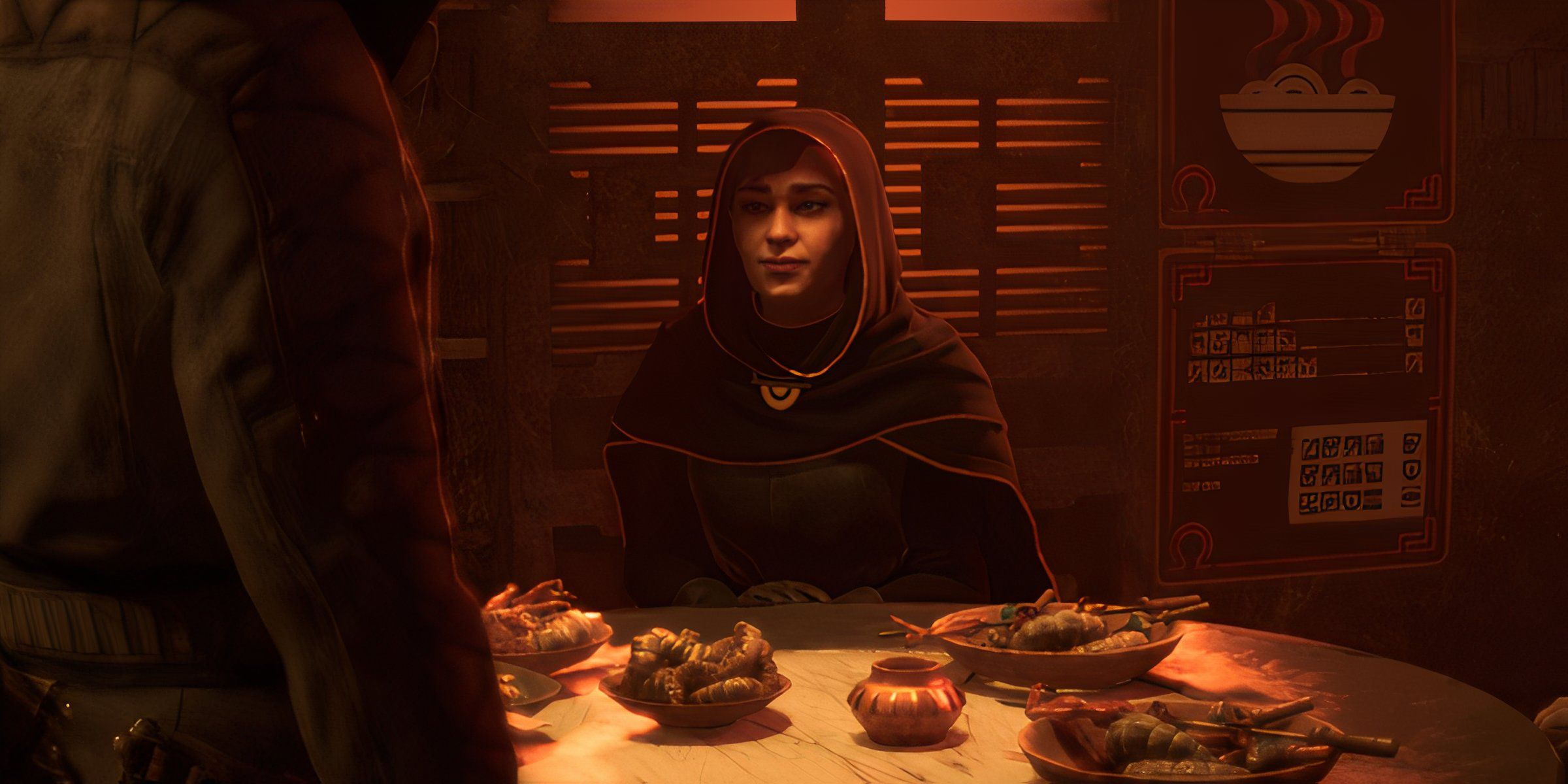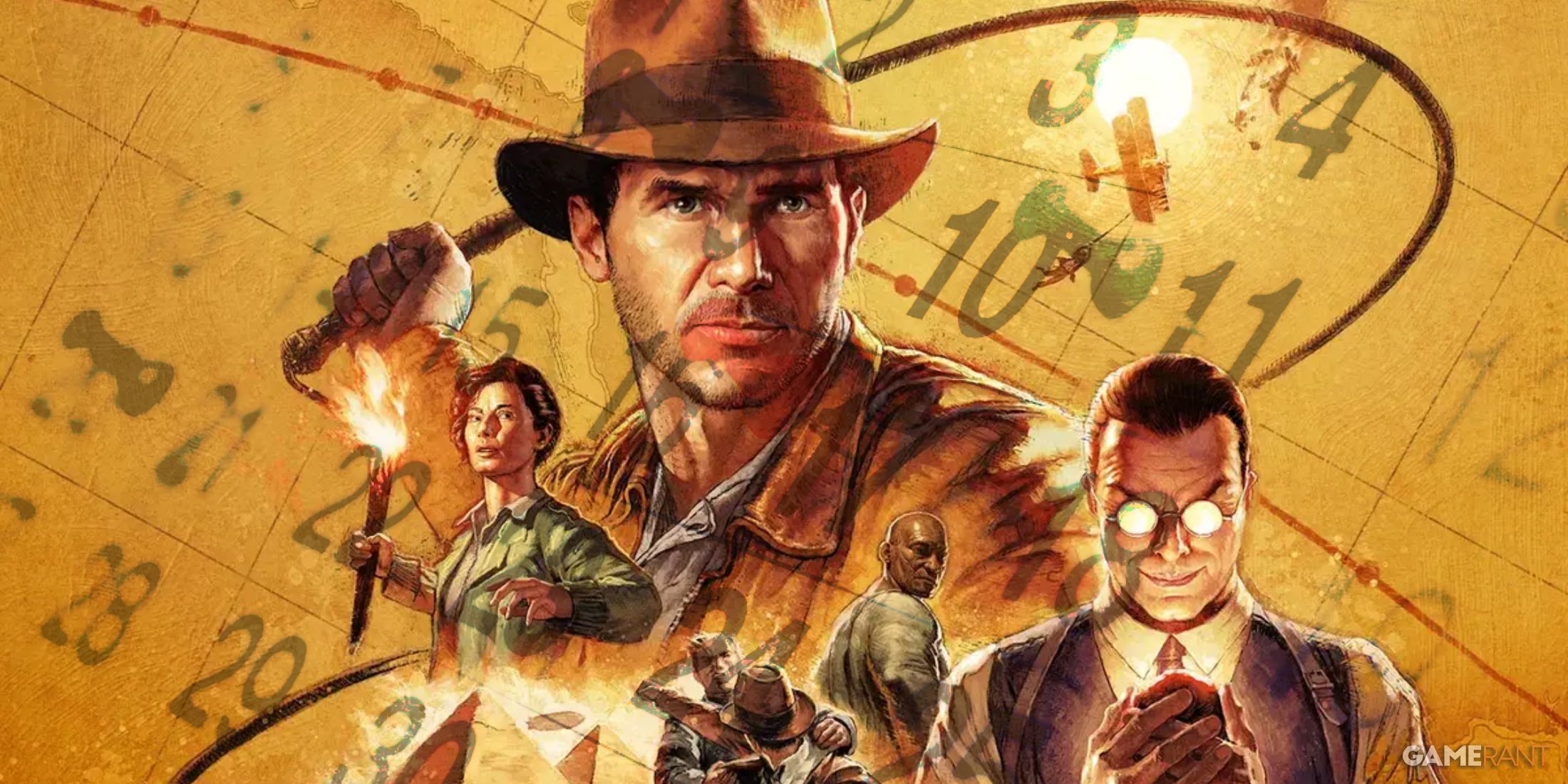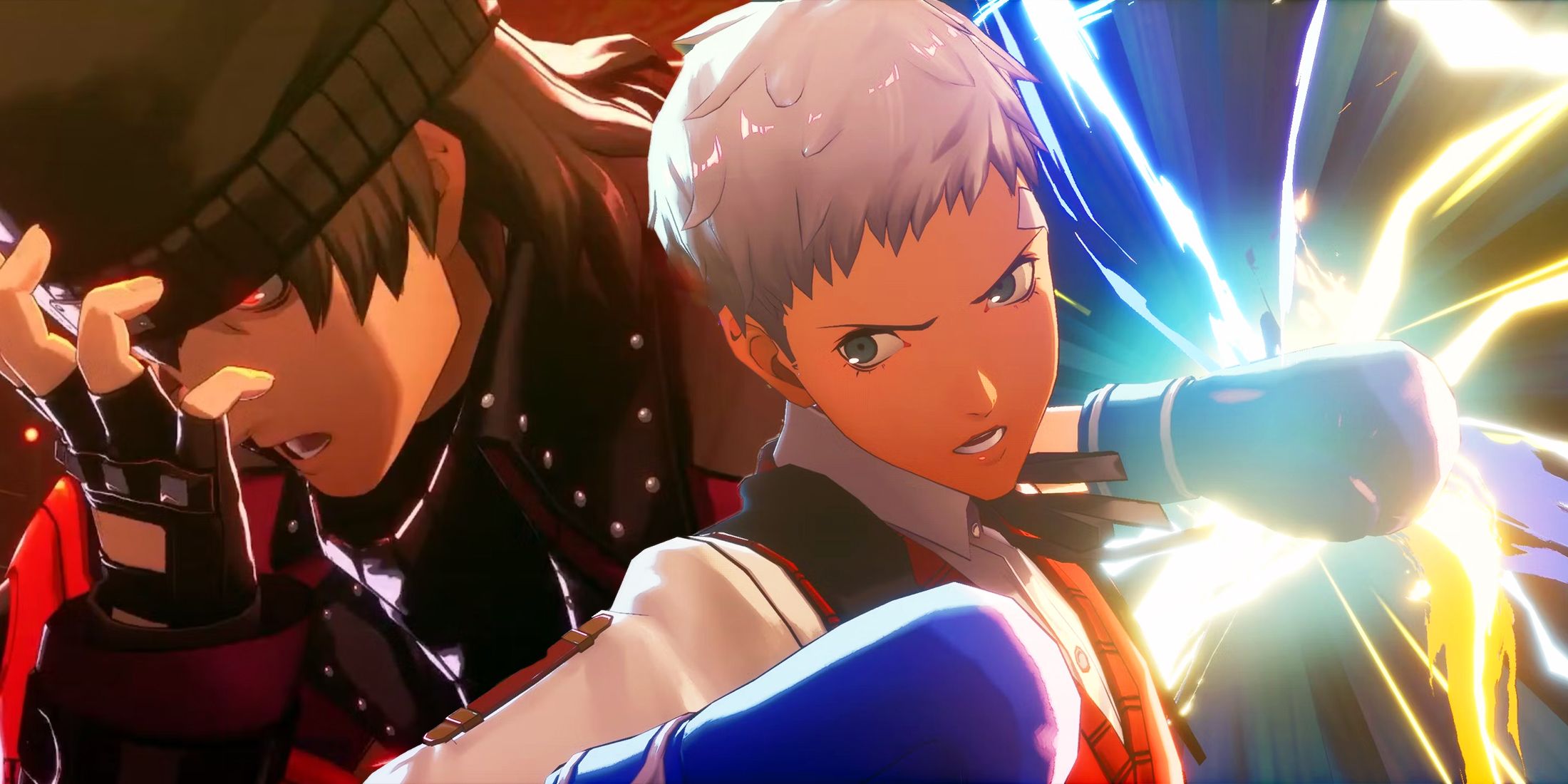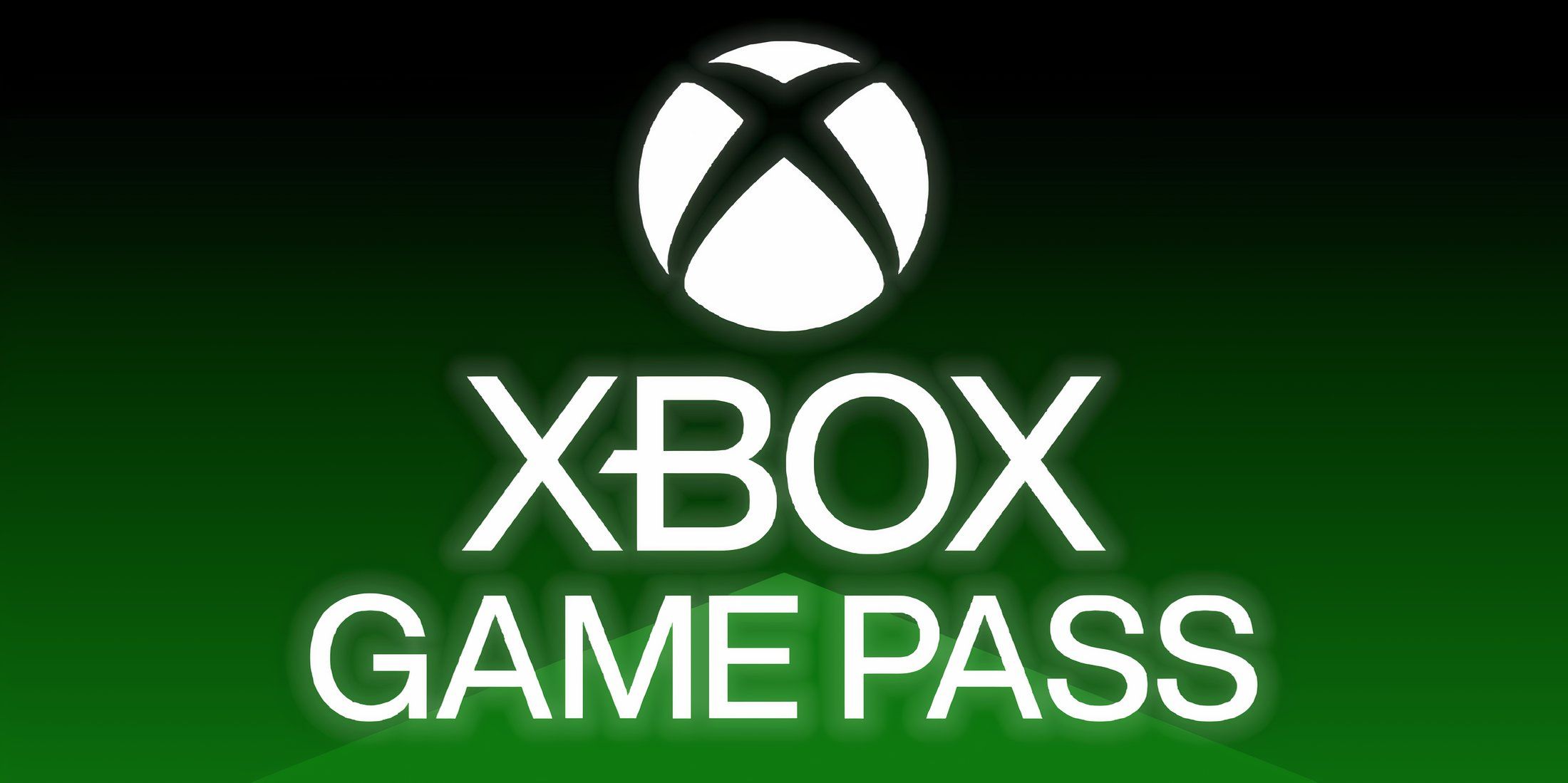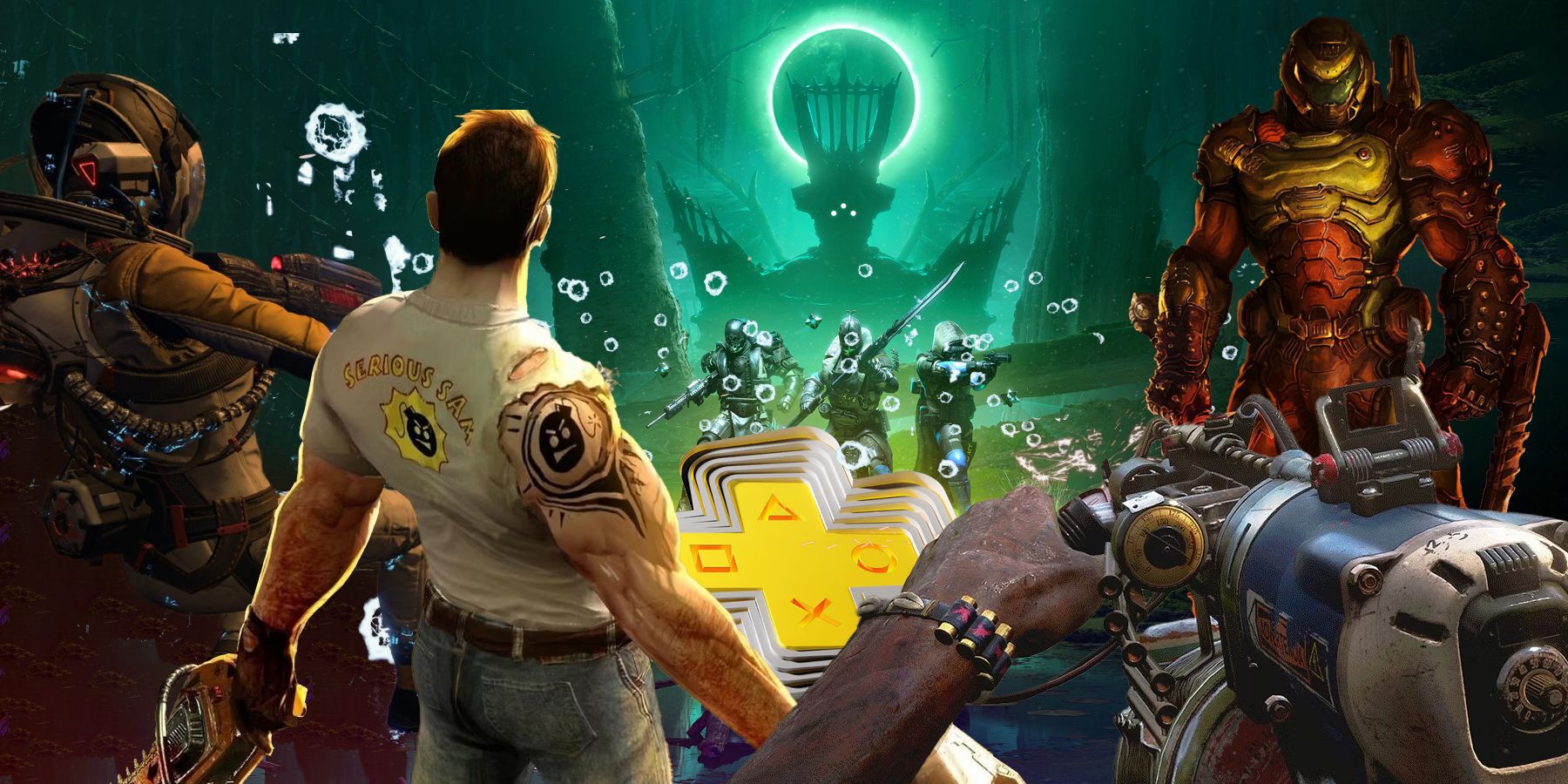Key Takeaways
- Offending a faction in Star Wars Outlaws can lead to loss of favor, but backing another faction can bring benefits.
- Reputation with syndicates opens doors in hideouts, but often doesn’t impact the main plot.
- Restricted areas tied to reputation limit access, and syndicates ultimately don’t feel as important as they could have.
As soon as players reach Star Wars Outlaws’ Mirogana on Toshara, Kay Vess is gradually introduced to the bustling world of crime syndicates and the influence they have in remote districts and hideouts throughout the galaxy. Kay already had a perilous taste of syndicates during her run-in with Zerek Besh in Canto Bight, which incites everything else afterward in Star Wars Outlaws, but because Sliro Barsha’s gang isn’t one players can affiliate themselves with and befriend it always seems extracurricular and not an impending threat at all times like the Pykes, Crimson Dawn, Hutts, and Ashiga can be.
Offending a faction usually results in a loss of favor with them, there is also commonly a beneficial reason to go behind their back or unapologetically side with another faction instead. This is where Star Wars Outlaws’ open world is most tantalizing—there is always an enticing reason to backstab a faction or not and every choice can boil down to what players’ current reputation status is with each. Unfortunately, the reputation system ironically matters little to the plot involving Zerek Besh and only if players decide they’d like to peek around in a syndicate’s most precious wares, and that’s where its significance falters.
Star Wars Outlaws’ Reputation System Bleeds into Most Corners of Gameplay
Reputation doesn’t affect the main story in Star Wars Outlaws at all and that’s its biggest downfall because in gameplay it is paramount. Players with a Good standing in a syndicate are treated to welcome entry at that faction’s respective districts and hideouts, where they can peruse wares and offer data to exclusive merchants.
Entry into these regions alone is reason enough to want to stay in at least a Good bar spectrum with each faction and doing so can be opportunistic when players decide to backstab a group they have a great reputation with. Mirogana’s Crimson Dawn district, for example, lets players in through a kitchen in the Market District that leads to the base of a landing pad. However, the Mirogana Crimson Dawn district’s vault and the landing pad itself are off-limits and regarded as restricted areas that players cannot enter regardless of their reputation with the faction.
A high-risk Infiltrator recon contract in Mirogana tasks players with placing a spike inside the Crimson Dawn district and completing this job is challenging because players must make their way in undetected all the way from the Market District if players don’t have a Good status with the Crimson Dawn. Heading to the district’s vault under these circumstances is even more grueling, but whether they have a Good status or not they’d still need to make their way through the district’s restricted area undetected, and thus it’s only half the battle having a Good reputation with the faction in this case.
Rather, a faction that accepts Kay will nonetheless pull a blaster on her in an instant if she plants a foot in a restricted section. As for this particular contract, it only requires players to place the spike within the area that is accessible with a Good status and is therefore a lovely incentive for working with the Crimson Dawn.
It isn’t terribly grueling to increase reputation levels if players are regularly indulging in ephemeral contracts, and
dipping back into Poor or even Bad
is more or less representative of players’ active refusal to accept contracts throughout the open world.
Likewise, players typically have the option to complete a contract as promised or accept an alternate deal with another faction or independent contractor. Weighing those options is important when considering what players’ reputation levels are with each syndicate and what choice will be the most disadvantageous at that moment, especially if the alternative option sweetens the deal with double the credits earned from a job.
There are tiny story beats players experience this way that each companion recruit comes with on Toshara, Kijimi, Akiva, and Tatooine. That said, none of them ripple into the greater waters of the actual heist plot and syndicates arguably should’ve amounted to much more in the story itself.
Star Wars Outlaws’ Restricted Areas Give Its Reputation System a Tight Leash
Besides
Trailblazer delivery crate rewards
players receive when they first reach a Good, Excellent, and Max reputation status, there isn’t much else players reap from a high reputation unless they’re eager to get back into Jabba’s palace on Tatooine or indulging in broker contracts for multiple syndicates and can use a faction’s high favor to betray them liberally.
It’s impossible to stumble into a faction’s territory and not know it since their insignia and the player’s reputation appears on screen when they do, and so it’s also not as if players having a Good status prevents them from mistakenly encroaching on an enemy’s hideout. All in all, there aren’t enough pros to being in bed with a syndicate besides free fast travel points deep into a hideout when the valuables that players want to cuddle up to them for are forever kept away in restricted areas anyway.
Narratively this makes sense because doing a couple of jobs for one syndicate wouldn’t necessarily win Kay over to them and all of their secrets. Plus, all of the Imperial bases players infiltrate are classified as restricted areas and can provide much-needed practice for how players may want to attempt breaking into a faction’s base, too.
The Galactic Empire is a massive risk to any plans players may have and the consequences are far more immediately felt when Wanted levels suddenly begin increasing, though the fact that players can’t side with the Imperials in any meaningful way as a kind of syndicate of its own is a missed opportunity given how much their presence may have potentially aided Kay’s role in Star Wars Outlaws. Disappointingly, choosing to pursue elaborate vault keycards and other restricted area-exclusive rewards funnels gameplay into a niche playstyle of stealth or combat that neglects Outlaws’ reputation system and its possible dialogue-related exploits altogether.
The reputation system only truly has one profound story tether: a syndicate will help Kay in the final ship combat sequence of the game alongside the Rebels depending on which one has the highest reputation status at that point. This is a neat moment, but it largely seems like an afterthought when syndicates haven’t mattered in the story at all beforehand and have only had an effect on where players can or can’t go freely.
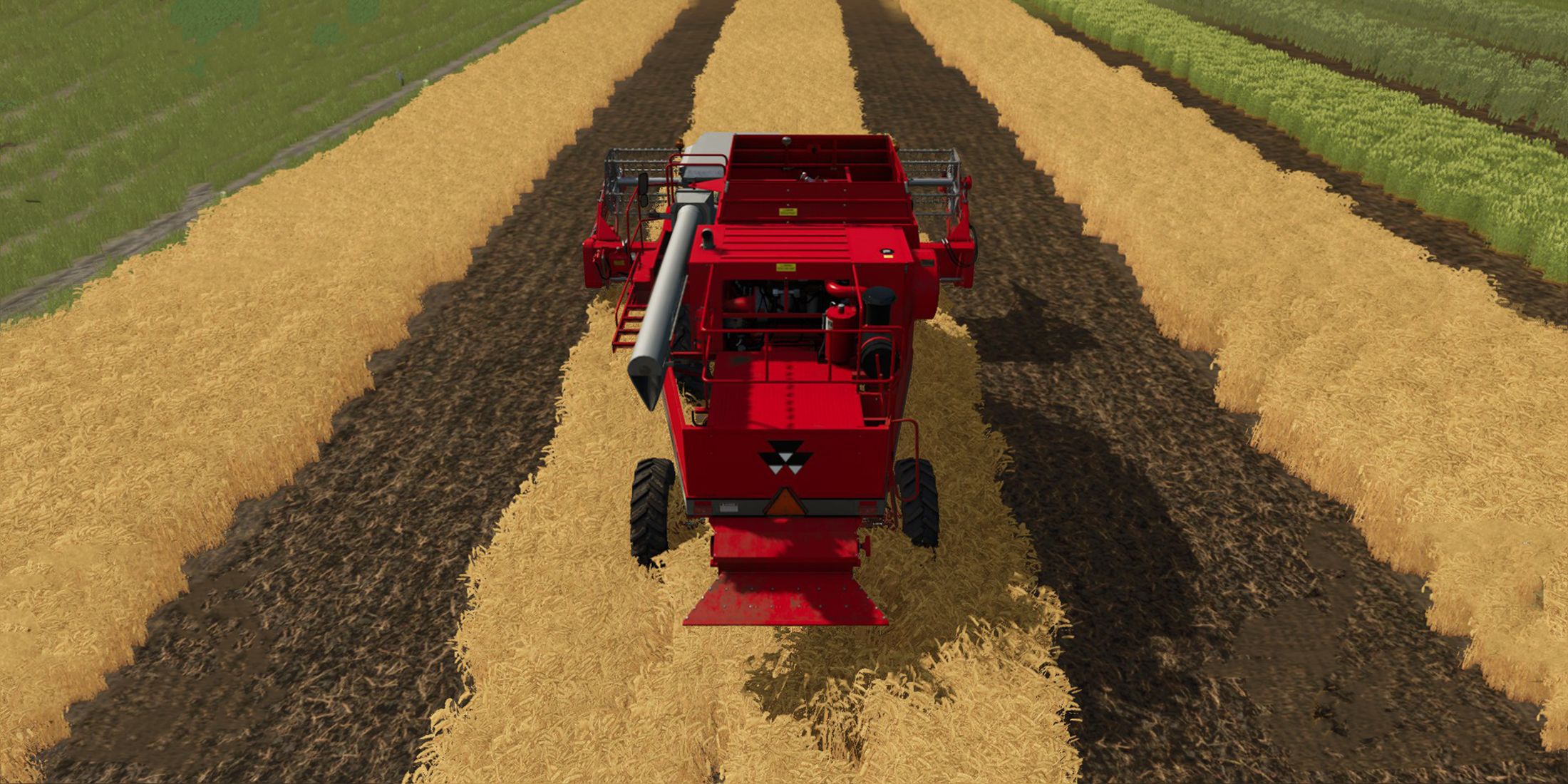
/cdn.vox-cdn.com/uploads/chorus_asset/file/25728923/STK133_BLUESKY__A.jpg)
